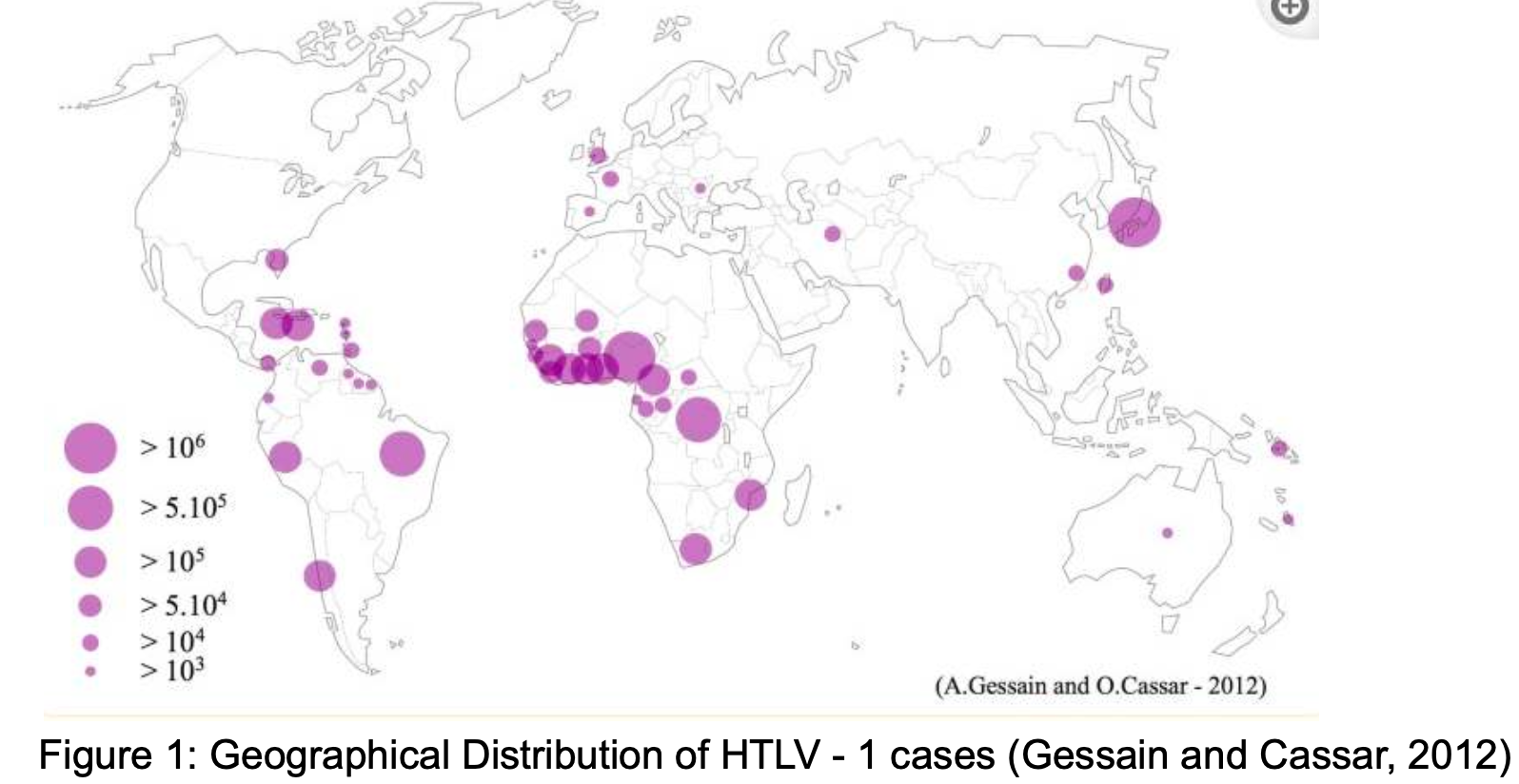Mechanics of HTLV - 1 Driven ATL
DOI:
https://doi.org/10.58445/rars.24Keywords:
Luekemia, Cancer, HTLV - 1, Adult T-Cell Luekemia, Biology, VirusAbstract
HTLV - 1 (Human T - lymphotropic Virus -1) is a retrovirus that can cause a non-Hodgkin’s ATL (Adult T - Leukemia/ Lymphoma). This virus can develop into ATL after a latency period of 30+ years after initial infection and integration of the viral genome into the host genome. (International Agency for Research on Cancer, 2012) This disease can be hard to treat in its ``Aggressive” forms as stated by the Lymphoma Research Foundation. This virus can be spread through bodily fluids such as semen or breast milk from an infected person as described by the WHO. Although less than 5% of people who have HTLV - 1 develop ATL, most patients with ATL pass away with a median survival rate of 8 months and a 4-year survival rate of 12%. Kensai Tobinai(2009). ATL is currently known to have 4 subtypes; Smoldering, Chronic, Acute, and Lymphomatous. Shimoyama M. (1991). They vary by their location and progression within the body. Currently, there is no vaccine against the virus, and ATL has no set treatment, guaranteeing life. David I. Marks, Clare Rowntree(2017). The virus-driven ATL is known to have low genetic diversity across the endemic regions of southern Japan, South America, The Caribbean, and tropical Africa. Gessain and Cassar, (2012) This is interesting since ATL has been previously thought to be driven by viral proteins rather than host genetics. Bangham, C. R., & Ratner, L. (2015); Toshiki Watanabi(2017).
This suggests host-driven genetic factors that drive the development of ATL. In addition, the integration sites of the viral genome are near host cancer genetic markers.Rosewick, N., Durkin, K., Artesi, M. et al (2017) . In this review, we present the evidence gathered to date that demonstrates the correlation between patient genetics and HTLV - 1 driven ATL.

Downloads
Posted
Versions
- 2022-12-23 (4)
- 2022-10-12 (3)
- 2022-10-12 (2)
- 2022-10-12 (1)

